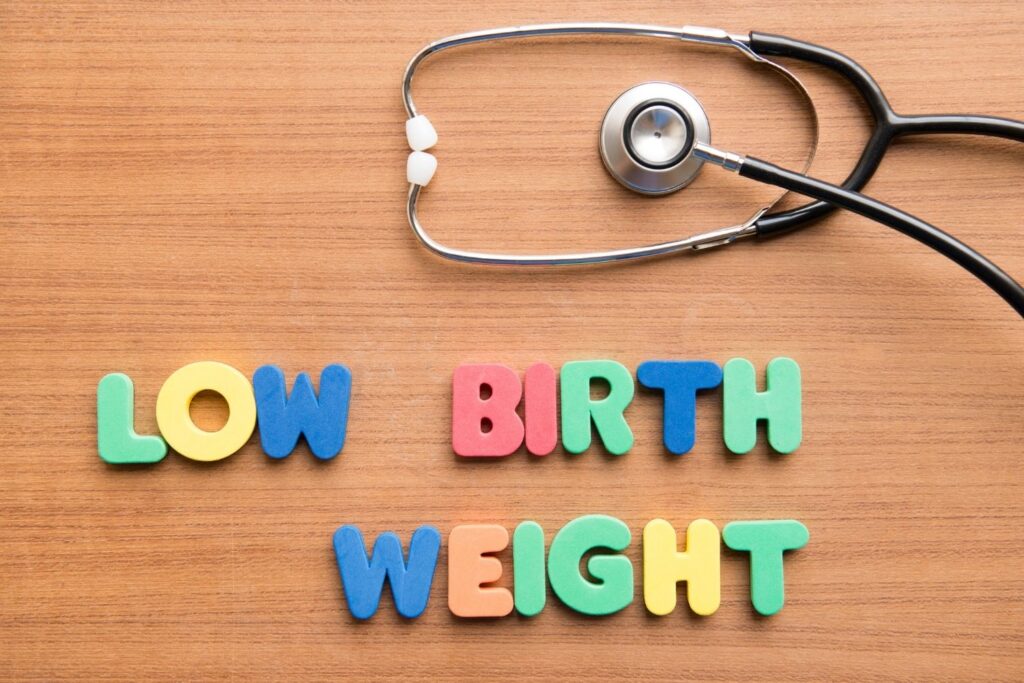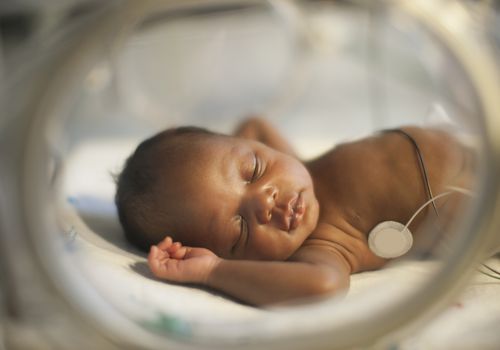-
 WHAT HEALTH PROBLEMS ARE COMMON IN LOW-BIRTHWEIGHT BABIES? Babies born with low birth weight may face...
WHAT HEALTH PROBLEMS ARE COMMON IN LOW-BIRTHWEIGHT BABIES? Babies born with low birth weight may face...

WHAT HEALTH PROBLEMS ARE COMMON IN LOW-BIRTHWEIGHT BABIES?
Babies born with low birth weight may face increased risk for health complications as a newborn or infant. A tiny body means the baby might not be as strong and may have more difficulty eating, gaining weight, and fighting off infection. In addition, a lack of body fat means that low birthweight babies have a harder time staying warm (even in normal temperatures).
Almost all low birthweight babies require specialized care in a hospital’s neonatal intensive care unit (NICU) until they gain enough weight to go home. As a rule, the lower the birthweight, the greater the risk for complications.
PROBLEMS ASSOCIATED WITH LOW BIRTH WEIGHT
Problems associated with low birthweight can include the following:
- Breathing problems such as respiratory distress syndrome (also known as RDS) – Babies with diagnosed with lack a protein called surfactant. This is the protein keeps the small air sacs in a baby’s lungs from collapsing. Babies with RDS require treatment with surfactant to help them breathe, and they can also need extra oxygen to help immature lungs function properly.
- Bleeding in the brain (also known as intraventricular hemorrhage or IVH) – Intraventricular hemorrhage is a neurologic problem that causes bleeding. Most brain bleeds are mild and correct themselves. But severe bleeding can cause pressure or fluid to build up on the brain. In the worst cases, this can lead to brain damage. For some underweight babies, a surgeon may need insert a tube to drain excess fluid or pressure from the brain.
- Necrotizing enterocolitis (also known as NEC) – This is a serious inflammation of a baby’s intestines that can cause feeding problems, abdominal swelling, and other complications. Doctors treat NEC with antibiotics to kill the infections. Hospital caregivers must feed the baby fed intravenously (through a vein) instead of by mouth while the gastrointestinal and digestive system heals. In some cases, these babies need surgery to remove damaged parts of intestine.
- Retinopathy of prematurity (also called ROP) – This occurs with the retinas do not fully develop during the weeks following birth. ROP is a condition that typically affects both eyes. If your newborn has ROP, it is imperative to get treatment right away since the disease can progress quickly and cause blindness if not identified during checkups. Some babies need medicine or laser surgery to avoid vision loss.
- Jaundice – This condition occurs when the liver does not function properly, causing a substance called bilirubin to build up in the blood. As a result, the baby’s eyes and skin look yellow. Hospitals treat severe jaundice in the NICU using light therapy, blood transfusion, or intravenous immunoglobulin (IVIg).
- Persistent ductus arteriosus (PDA) – PDA occurs when the open blood vessel needed for fetal circulation does not close properly at birth. This condition causes extra blood to flow through the lungs. Babies with PDA may need nonsteroidal anti-inflammatory drugs or surgery to correct it.
- Sudden infant death syndrome (SIDS)
POSSIBLE HEALTH ISSUES LATER IN LIFE
What Health Issues Could Affect Low-Birthweight Babies Later in Life?
In some cases, babies born with low birthweight face great risk of certain health conditions later in life. Certain risks include the following:
- Diabetes
- Heart disease
- High blood pressure
- Metabolic syndrome (a combination of diabetes, heart disease, and high blood pressure)
- Obesity (a BMI of 30 or higher)
- Developmental challenges
- Cerebral palsy
- Deafness or blindness
It is important to get all regular health checkups to keep stay ahead of conditions that may impact a child as he or she grows older. Children born with low birthweight should eat a nutritious diet to ensure to best possible chance of good health.
AVAILABLE SERVICES
What Early Intervention Services are Available for Children Born with Low Birthweight?
If your child has developmental delays, it is imperative to seek early intervention services as quickly as possible. Signs of development delays are present when the child has not met key developmental milestones. These milestones are skills or activities that children are expected to do by a certain age, such as sitting, walking, speaking, social skills, or thinking skills. Early intervention services provide help for childhood development. These programs assist children from birth to three years. Example services include therapy to help children with speech, gross motor skills, fine motor skills, self-help, and social skills interaction. For more information on early intervention services, contact us.



